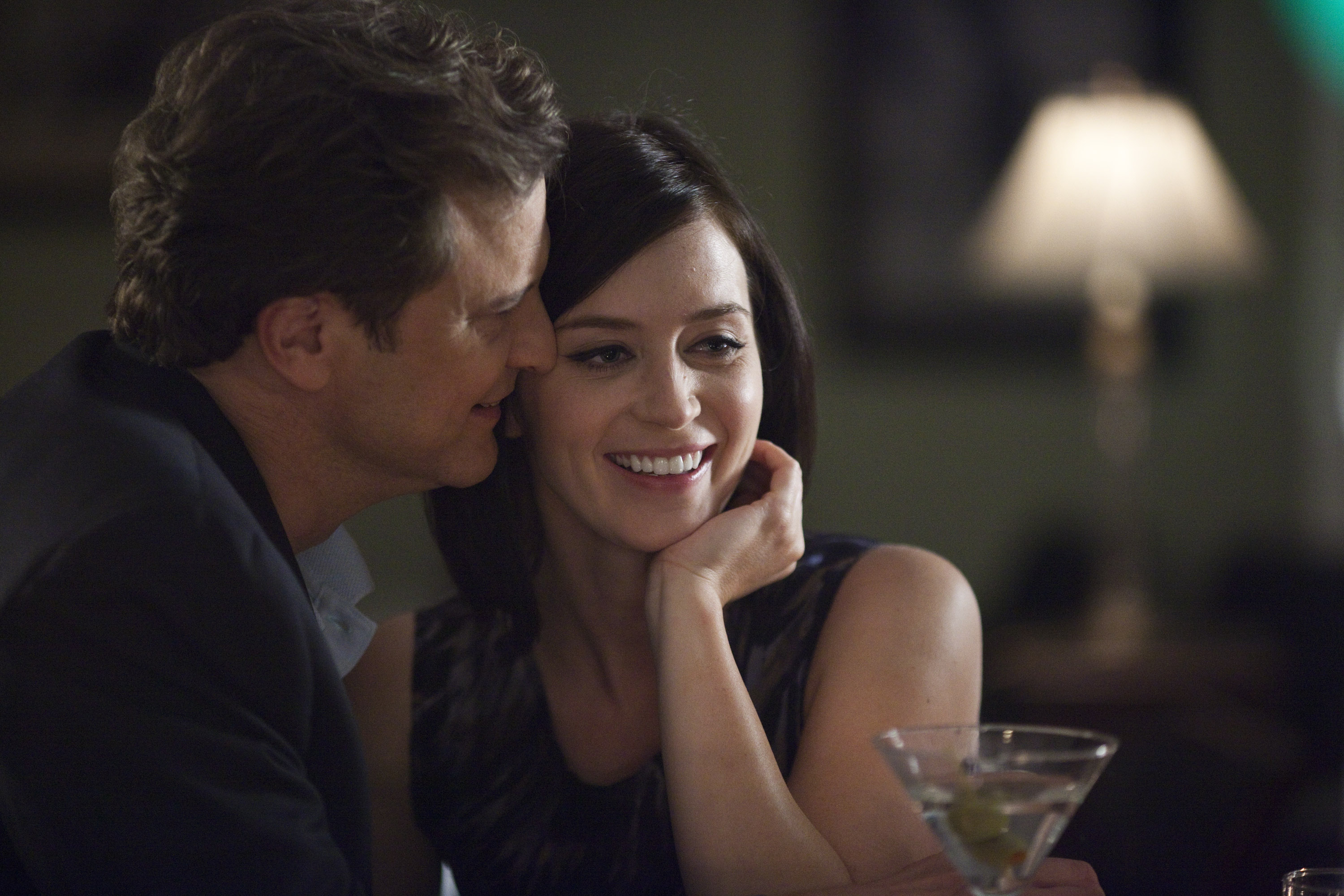Arthur Newman
Opens Fri., April 26 at Meridian. Not rated. 101 minutes.
The name Arthur Newman has been plucked out of thin air by an Orlando FedEx floor manager (and onetime amateur golf champ) named Wallace Avery. Nebbishy Wallace (Colin Firth) has suddenly glimpsed the opportunity to drop out of his life and start over, and “Arthur Newman” sounds like a suitably bland pseudonym.
Who knows where the name comes from? A subconscious desire to be that new man? A vague recall of countless Mad magazine covers? Whatever, it drives Wallace to becomes something—anything—other than what he is now.
And so we launch into Arthur Newman, a wish-fulfillment movie on the tantalizing topic of wiping the slate clean and starting over. For our hero, this means faking a suicide and hitting the road in a new convertible, leaving behind an estranged son (Lucas Hedges) and a girlfriend (Anne Heche—who, as usual, does a lot with very little). It comes as a huge disappointment that the film almost immediately introduces Arthur—we’ll call him that from now on—to a tiresome example of the manic pixie form, a girl called Mike (Emily Blunt), who shows up in a lounge chair by the pool at Arthur’s motel at midnight, tanked on cough syrup and self-loathing. His journey is thus derailed by a kook romance, as the two engage in a little harmless breaking and entering while role-playing their way through different characters.
You can feel the wind leave the movie’s sails when Mike shows up, as Arthur’s open road narrows to one neurotic (and, to be sure, erotic) focus. Nothing against the resourceful Blunt, who tries hard to get something authentic into screenwriter Becky Johnston’s conception of the role, but she has an impossible task. Firth revels in the tonelessness of his American accent, which reflects his character’s blankness. The whole exercise supplies a tidy metaphor for acting, as he tests out voices for Arthur, looking for the key to this new persona he’s tackling.
Director Dante Ariola has a track record in TV commercials, a history betrayed by his willingness to opt for the cutesy joke at every opportunity. The movie’s plot conjures up a faraway echo of the 1969 Francis Ford Coppola oddity The Rain People, and the comparison isn’t kind: Where Coppola went for arthouse eeriness, Ariola settles for self-satisfied vignettes. This undercuts whatever chance Firth and Blunt have at exploring the subject of personal emptiness and leads to a sentimental conclusion that resolves too much—while at the same time supposedly “leaving the door open.” The latter presumes our curiosity about what happens next, which seems unlikely in this case.
film@seattleweekly.com







